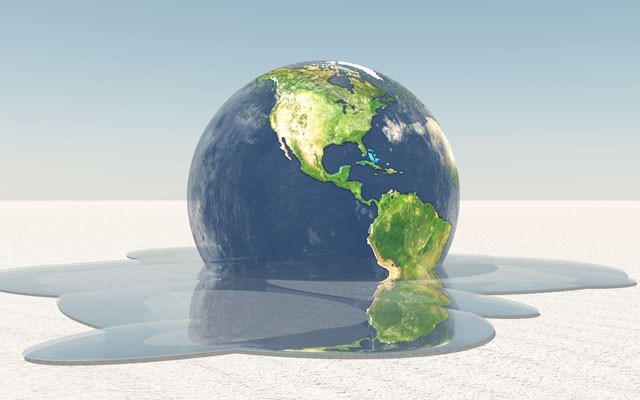It is one of those rare times in history where the world is united along a common understanding: we can no longer stand by and allow the global temperature to continue to rise unchecked.
Yes, the challenges ahead feel daunting — CO2 stays in the atmosphere for 100 years and methane gas for 50 — but what is at stake here is nothing less than the future of the planet.
There are many places in the world already feeling the dire consequences of climate change — take a look at the Maldives for example. In mid-level global warming scenarios, the Maldives will likely experience a sea level rise of around half a metre by about 2100, swallowing up to 77 per cent of its land area.
Alarming statistics no doubt. But were you aware that between 1948 and 2013, the average annual temperature in Canada has warmed by 1.6 °C (relative to the 1961-1990 average) — a higher rate of warming than in most other regions of the world?
As the temperature continues to climb we will see changes in rainfall and its distribution, snow, and ice and a heightened risk of extreme weather events such as heat waves, heavy rainfalls and related flooding, dry spells and/or droughts, and forest fires.
Eight of our 10 provinces, and all three territories, border ocean waters (including Hudson Bay), so there is no escaping the fact that we will be affected by changing ocean environments, including changes in average and extreme sea level, wave regimes, and ice conditions.
Just look at what has been happening to the Arctic sea ice cover, particularly during the summer season.
(Check out Google maps, which now show if climate change will put your home under water — 150 million or more people are currently living on land that will either be submerged or exposed to chronic flooding by 2100.)
All of these effects add to the vicious cycle of ever-increasing rates of warming, which affects everything that lives in the Arctic — from polar bears to migrating birds and animals, to fish stocks and the people who live in the North. That cycle will be very hard to break, as long as the economic gains continue to increase.
Perhaps that is why Canada has become one of the worst performers when it comes to curbing greenhouse gas emissions.
According to the Washington-based Center for Global Development, Canada has fallen to dead last compared to 27 other OECD countries (Organisation for Economic Cooperation and Development) when it comes to climate change remediation.
On the international scene Canada is part of the problem, not part of a solution.
But perhaps that is about to change.
This week Prime Minister Justin Trudeau told delegates at the Paris climate change summit that Canada "will take on a new leadership role internationally."
The Paris talks represent the culmination of more than 20 years of efforts to enact such a deal, including two previous meetings of world leaders. Both of those gatherings — in Kyoto in 1997 and in Copenhagen in 2009 — ended with documents that were ultimately viewed as failures.
Will Paris be seen in the same light? Despite the best efforts of those at the conference it is unlikely that emissions targets will be set high enough to "solve" climate change, but action must be taken. But there is value in the international gathering and the message it is sending to political leaders and world citizens.
It is naive to think that everyone would embrace ideas put forward by countries such as Canada.
For some time we have been hearing from a group of developing countries led by India asking why they should be asked to curb their economic development to help address a problem created by already-rich nations.
It's a good question and one that leaders of industry are asking too. At the conference this week The Breakthrough Energy Coalition, made up of more than 25 investors from 10 countries, launched a way address such questions.
The coalition is led by billionaires Bill Gates, Mark Zuckerberg, Richard Branson and other high-profile entrepreneurs, who have pledged to spark a "new economic revolution" based around clean energy after launching a new investment drive for renewables.
Closer to home the B.C. Climate Leadership Team (CLT) released its recommendations this week to the province. Consisting of leaders from the business, academic and environmental communities, as well as First Nations and local governments, its mandate is to review options for economic development and greenhouse-gas emissions reductions, and also make recommendations for the government's new Climate Leadership Plan.
The CLT recommended a 2030 target to reduce emissions across three broad sectors: Built Environment, Industry and Transportation by 40 per cent, compared to 2007.
To some the issues of climate change may seem remote but there is no denying that ski resorts are already seeing the effects, though for the most part business planning is well under way to try and mitigate impacts where possible.
But there is little doubt that sometimes it feels hopeless. For the last few months slash and burn fires have ravaged thousands of hectares of forest in Indonesia (See Glenda Bartosh's column this week on page 56). The fires are emitting nearly 16 million metric tons of carbon dioxide a day — more than the entire U.S., whose economy is 20 times the size of Indonesia's.
Let's hope Indonesia is at the table in Paris, and that the developed nations can find a way to help it and others to find economic success without jeopardizing our planet.




